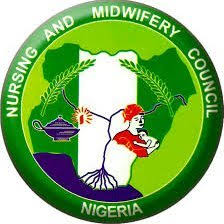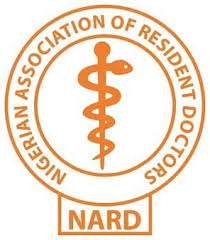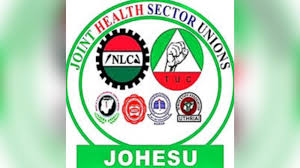The National Agency for Food and Drug Administrative and Control (NAFDAC) has taken on the renaissance of herbal medicines that are included among its regulated products. The Act that created the Agency mandates the regulation and control of the manufacture, importation, exportation, distribution, advertisement, sale, and use of food, drugs (including herbal and nutraceutical products), cosmetics, medical devices, packaged water, chemicals and detergents (collectively known as regulated products).
Considering the rich plant biodiversity in Nigeria, from which medicinal preparations are derived, and the upsurge in the use of herbal medicines, the Director-General Prof Christianah Mojisola Adeyeye met with the technical Directorates involved in the regulation of Herbal Medicines. This meeting led to the establishment of a special Herbal Medicinal Products Committee (HMPC), which held its inaugural meeting on the 15m of March 2019. The goal was to address concerns relating to preservation and standardization of herbal products, whilst promoting research leading to viable and registerable herbal products that could be manufactured in commercial quantities.
Prior to the setting up of the HMPC, such challenges as inadequate level of research, poor documental, inadequate number of standards for raw materials, lack of standardization herbal medicines, as well is lack of medicines, as well as lack of cooperation/collaboration of practitioners with scientists/researchers were hampering progress. In addition, the low level of understanding of protection of invention and the Intellectual Property Right Laws (IPR), secrecy, lack of incentive for complete disclosure of herbal actives in the products and lack of clinical trial of existing herbal medicines were some of the reasons for setting up the Committee.
The popularity of use, and concerns relating to the safety, quality and efficacy of these herbal products have buttressed the need for strict regulation and control by NAFDAC, while encouraging the translation of the herbal products to registered medicines. Taking into cognizance, the large population of Nigerians who depend on these preparations for various health needs, the Agency is adopting various strategies aimed at building and strengthening systems to ensure products available for use by the populace are safe, of good quality and efficacious.
In attendance at the inaugural meeting was a representative of the Minister of Health, representatives of the National Association of Nigerian Traditional Medicine Practitioners (NANTMP), members of the Academia - Obafemi 1 Awolowo University (OAU), University of Benin (UNIBEN), University of Lagos (UNILAG), Ahmadu Bello University (ABU), University of Nigeria, Nsukka (UNN)-herbal medicine practitioners, manufacturers of herbal medicines, a representative from the Nigerian Natural Medicine Development Agency (NNMDA) and NAFDAC staff from different Directorates.
Goodwill messages delivered at the occasion commended the leadership of the Agency for the initiative and for the inauguration of the Committee, whilst emphasizing the need for advocacy to support funding for the Agency in this area. Participants bemoaned the lack of a herbal medicine policy that would encourage research and was pleased to see NAFDAC paying more attention to locally manufactured herbal medicines. In particular, one of those in attendance, General Williams, remarked that many African countries like Ghana, Kenya and South Africa, were ahead of Nigeria in the area of African Traditional Medicines citing the example of the Alternative Medicine Council for registration of practitioners in Ghana. The Herbal Research Institutes in China, Herbal University, Botanical Gardens and the Ayurvedic medicine policy in the National Health System of India were also cited as examples of progress and integration of herbal medicines into Health systems. A total of 72 participants were at the meeting.
The Director-General, Professor Mojisola Christianah Adeyeye, in her Opening address, highlighted some of her achievements since she took over the mantle of leadership. She stated that Nigeria is sitting on a gold mine as far as herbal medicine is concerned because of the rich floral biodiversity. She expressed the need to harness the herbal practitioners' knowledge and resources in order to prevent intellectual knowledge loss as well as prevent extinction of useful medicinal plants. In line with these thoughts, she stated that she had set up a committee within NAFDAC to evaluate quality attributes that could be added to the current safety indices in order to enhance the safety and quality of herbal medicinal products.
She lamented the lack of trust between the practitioners and other stakeholders which has stunted the growth of the industry in the country. She therefore called for collaboration and the need to create a culture of instituting confidentiality agreements to promote trust. She revealed her passion for herbal medicinal products, exemplified by her collaboration with a local manufacturer on research that demonstrated the anti-sickling and anti-bacterial activities of a listed herbal medicine for the management of Sickle Cell Anaemia over ten (10) years ago, before she was appointed the DG of NAFDAC.
At the meeting, Nigerian Herbal Medicinal Products Committee (HMPC) was adopted as the name of the Committee and was formally inaugurated.
Seven sub-committees with corresponding/matching terms of reference were identified as follows:
- Guidelines for Claims Verification —headed by Prof. Anthony Elujoba
- Protocol for Clinical trials, - headed by Prof. Adebukunola Adefule-Oshitelu
- Identification and Standardization of Herbal Medicinal Products, - headed by Prof. Maurice Iwu
- Records of use and Efficacy of Herbal Medicinal Products, — headed by Prof Olukemi Odukoya
- Guidelines for harvest and post-harvest handling of herbal raw materials, - headed by Dr. Odeyeml
- Herbal Medicine Vigilance (Phytovigilance for safety monitoring), - headed by Dr. Abbas Waziri
- Formulation and Product Development, - headed by Prof. Martins Emeje
It is expected that the various Sub-committees will come up with draft guidelines, protocols and relevant documents.
The DG encouraged members with new and unique products to enter into collaboration with the academia, adding that confidentiality agreements would be signed to ensure protection of the information and patency rights. She further emphasized that NAFDAC was committed to ensuring quality, safe and efficacious herbal medidnes and would continue to provide the necessary support to stakeholders. The meeting agreed on the formation of focal working groups, which would, submit reports and guide the next steps of the Committee.
The second meeting of HMPC held on the 6th September 2019, and was attended by over 66 participants comprising experts, researchers, scientists of international repute, Herbal Medicine Practitioners (with representatives from NANTMP), representatives from Federal Ministry of Health (FMOH), NNMDA & National Institute for Pharmaceutical Research and Development (NIPRD). The academia was also present from Obafemi Awolowo University, University of Benin, University of Lagos and Ahmadu Bello University. The meeting was convened as a follow up to the inaugural meeting to get feedback from the committee focal groups as well as build linkages between interested practitioners and researchers.
Some key resolutions arising from the presentations of the reports by the focus groups are as follows:
- A workable phytovigilance guideline for Nigeria is to be developed by building on the already existing Pharmacovigilance policy in line with International Best Practices.
- There is need to urgently develop a draft protocol for Clinical Trial (CT) of Herbal Medicines.
- Manufacturers should be adequately trained on standardization of their products and also identify marker substances
- To foster collaboration and build trust among herbal practitioners, researchers, and other stakeholders, parties should sign non-disclosure agreements and material transfer agreements, in order to guarantee that Intellectual property will be protected.
Manufacturers/practitioners were advised to link up with at least one or more researchers and follow due process with respect to researchers' findings on Investigated claims, especially when they are not In concordance with theirs.
The third meeting of the HMPC was held on r May, 2020. The meeting was a virtual meeting due to the COVID-19 Pandemic, and was attended by stakeholders in the herbal medicines space and invited speakers. Notable among attendees were the Director General, National Office for Technology Acquisition and Promotion (NOTAP) practitioners, researchers, government agencies The Registrar, Trademarks, Patents and Designs Registry, Ministry of Industry, Trade and Investment, Director-Traditional, Complementary and Alternative Medicine (TCAM) FMOH, representatives from NNMDA, NIPRD, Directors in NAFDAC, the academia/researchers and practitioners /manufacturers.
The objective of this meeting was to continue the ongoing work of the Committee and bring together researchers and manufacturers of herbal medicines with potential for Listing and or Clinical Trial (CT).
The Major highlights of the virtual meeting included:-
Prof. Moji Adeyeye's presentation of the draft Confidentiality Agreement for practitioners collaborating with researchers to members for their comments and input.
The Director, Drug Registration & Regulatory Affairs Directorate (D-DR&R) Dr. Monica Eimunjeze's presentation on 'Technical Information Submission Template' which is a template of information required to be submitted by manufacturers to support an application for the listing of herbal medicinal products.
Abridged presentation on guidance to sponsors of clinical trials in Nigeria, including COVID-19 related trials, by the Director, Drug Evaluation and Research (DER), Mrs. Ijeoma Nwankwo.
The director of Drug & Biologic Laboratory, Mr. Victor Abiola, and Director of Food Laboratory, Dr. Charles Nwachukwu made presentations on major parameters for laboratory analysis of herbal medicinal products, some of which include safety tests; physicochemical test, safety test, qualitative tests & chemical analysis.
Meanwhile, the Agency has created a website https://www.nafdac.gov.ng/wp- content/uploads/files/resources/guidelines/CTD_Guidelines/Guidance-To-Sponsors-Of-Clinical-Trails-In-Nigeria-Including-Covid-19-Related-Trials..pdf to address expedited review process of COVID-19 related clinical trials. Practitioners were informed that products which has listing registration could apply for CT. Manufacturers of new products are advised to apply via website https://www.nafdac.gov.ng/wp-content/uploads/Files/resources/Guidelines/HERBAL_GUIDELINES/Guidance-Document-For-Submission-Of-Application-For-Administrative-Approval-Of-Herbal-Medicines-1.pdf for listing, while manufacturers without standard manufacturing facilities are encouraged to partner with existing facilities with satisfactory GMP.
Signed:
Prof. Moji Christianah Adeyeye, FAS
Director – General
NAFDAC: Customer – focused, agency minded




